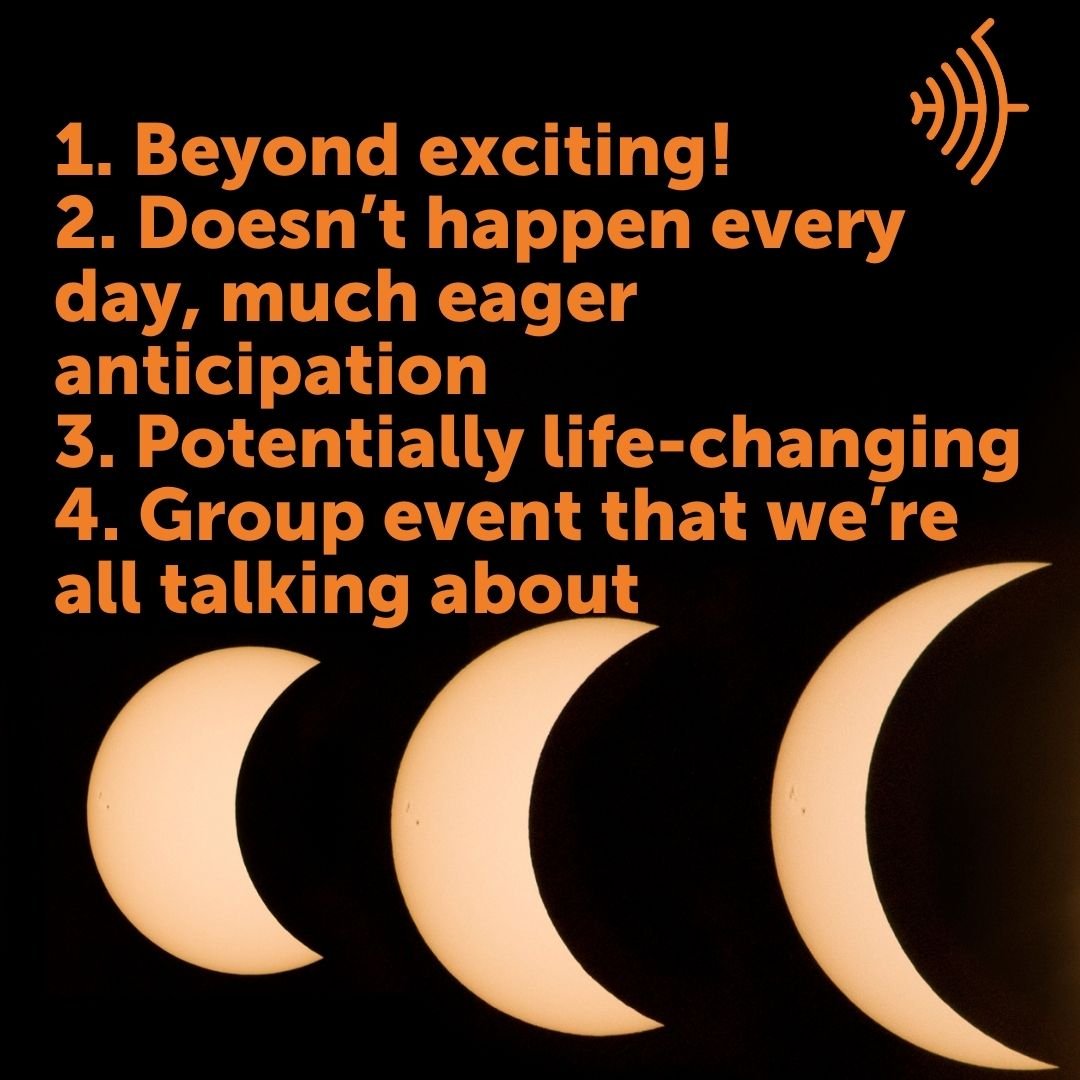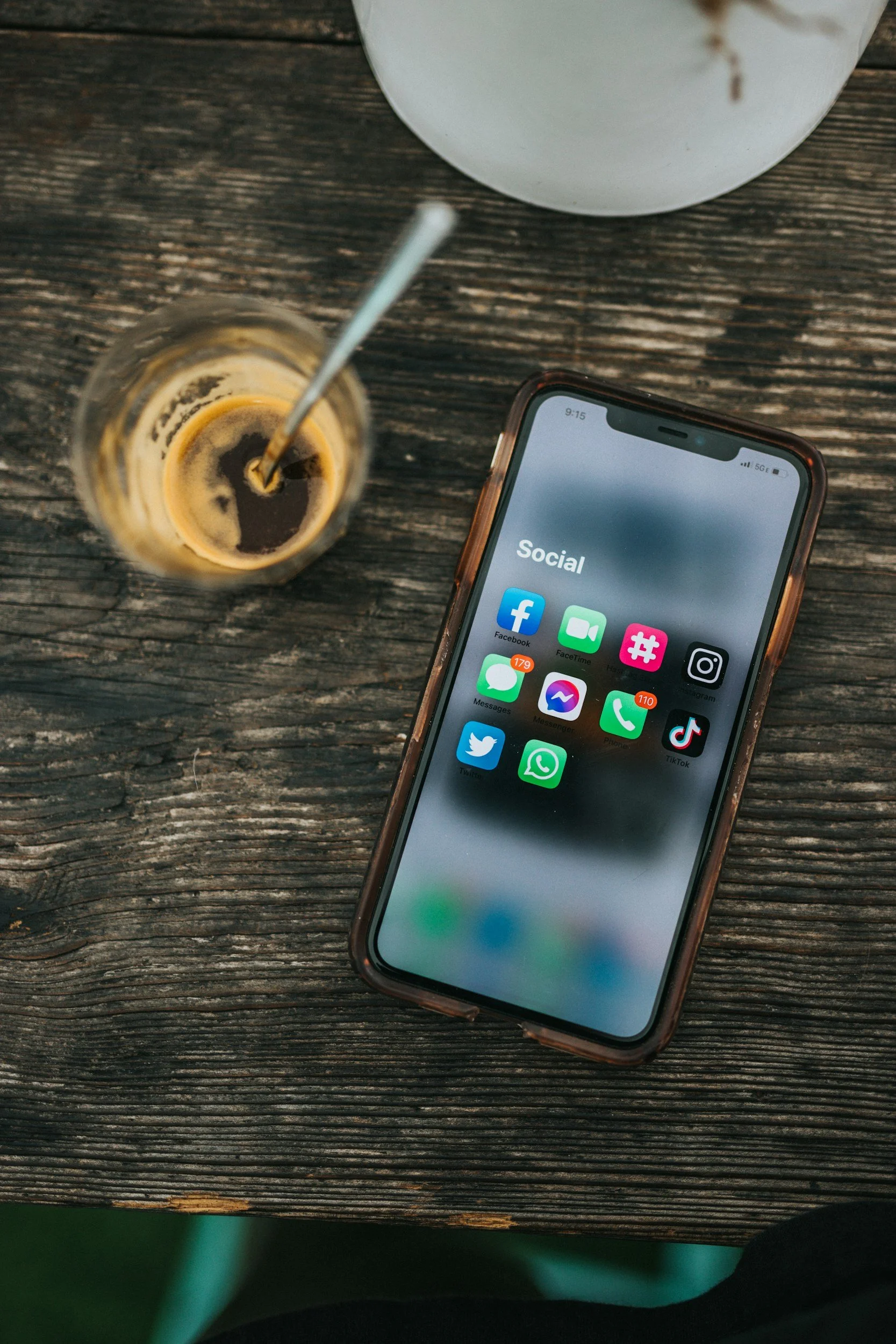By Yishane Lee
As total solar eclipse mania reaches a fever pitch across the U.S. on April 8—with what feels like nonstop news coverage of preparations, travel, special shows, scientific explanations, historical context—I am struck how an important piece of the coverage around making sure we protect our eyes very much reminded me of what we here at Hearing Health Foundation have been trying to convey when it comes to hearing.
Then I realize nearly everything about the total eclipse reminds me of our Keep Listening prevention campaign and our message of safe listening. Specifically, there are so many similarities between eclipse viewing and concert going.
It’s so exciting we can barely contain ourselves. There might be weeks or even months of preparation. Buying tickets or book flights or renting cars, figuring out hotels if overnighting, and of course what to bring and wear.
The excitement stems in large part from it feeling like it’s once in a lifetime, a super rare occurrence! Then by the same token, once we’re actually in the moment and afterward, it’s not unlikely we’d describe it as life-changing. Transformational, even, and possibly humbling, and a memory to be savored for decades to come.
And importantly, it’s also a group event that literally everyone we know is talking about, and all ages, from the youngest to oldest fan. And we are all participating, either in person or through the coverage on the news and pop culture. It’s on every sort of medium—TV, radio, social media, print—we’d have to be under a rock to have missed it.
The health piece is where this comparison is the most interesting. Every single piece of news coverage mentions the importance of not staring straight into the sun and to use special glasses that we all prepped and bought beforehand and had on our person. Being exposed could bring damage in mere minutes if not seconds—damage that is permanent.
I so appreciated the constant reminders to protect our eyes and how everyone really did—and had the right glasses—so how difficult would it be to continue this messaging when it comes to concert going and bringing and using earplugs? Even a brief exposure of mere minutes to loud sounds over 100 dB can cause permanent damage to our ears.
Perhaps most of all, the message of enjoying responsibly is one we really try to impart. There’s no way we’d advocate skipping concerts or other fun events that are loud, we just want everyone to listen responsibly. (It’s true we also recommend resting our ears before and after, and turning it down even a little to help reduce the risk to our ears.)
Eclipse viewing showed us that public health messages can get through, and that we can all safely enjoy amazing, once-in-a-lifetime experiences, whether it’s a solar eclipse or Taylor Swift or Beyoncé—and so that we can keep doing the things we love, for life.









These findings suggest that the ability to integrate what is seen with what is heard becomes increasingly important with age, especially for cochlear implant users.